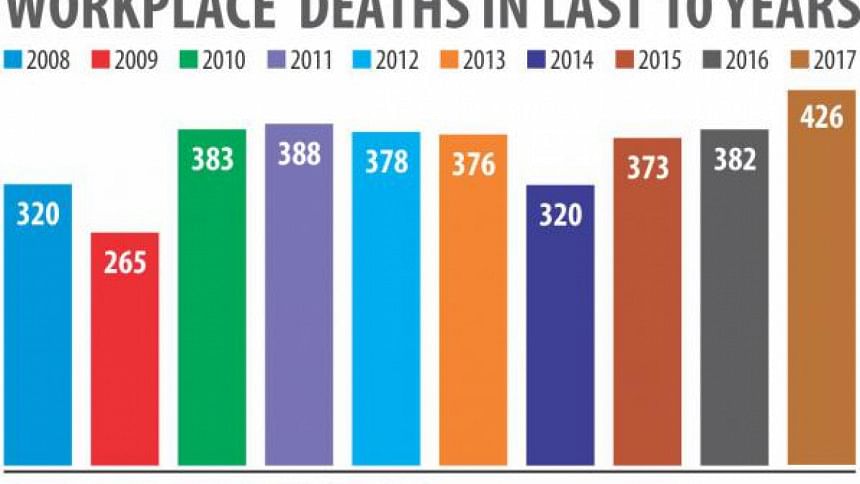Least bothered about workers' safety

Two separate reports have been published recently about deaths at workplace. Indeed, the year 2017 has been a particularly deadly year for workers in Bangladesh. These are of course reported deaths and experts agree that the actual number may be much higher. The report by Safety and Rights Society, an NGO involved in improving workplace safety, states that there were 426 reported deaths in 2017, a rise of 11.5 percent from the previous year. Sectors where most deaths occur are transport followed by construction, and most deaths occur in the districts of Dhaka, Chittagong, Gazipur, Sylhet and Narayanganj.
The scenario has only become worse year after year in the absence of the government's workplace monitoring mechanism. Though there are bodies like Rajuk and Department of Inspection for Factories and Establishment, neither have the manpower or clearly delineated roles, which make it easy for employers to simply ignore workers' safety. Mere formation of a committee or a cell will do nothing to improve safety standards; it has to be enacted into law replete with penalties, both financial and criminal negligence. As pointed out in another report prepared by Bangladesh Occupational Safety, Health and Environment Foundation (OSHE) in late December 2017, the death toll continues to rise in factory boiler explosions and the lacklustre response from the government in recruiting inspectors to conduct safety inspections.
Not ensuring workers' safety, apart from violating human rights, also affects productivity, and in turn, the economy. Work deemed hazardous does little to encourage skilled workers to find work in sectors like construction, which ultimately will deprive the sector. It is really up to the government to get its act together in making employers take responsibility for ensuring safe working environment in all sectors.

 For all latest news, follow The Daily Star's Google News channel.
For all latest news, follow The Daily Star's Google News channel. 






Comments